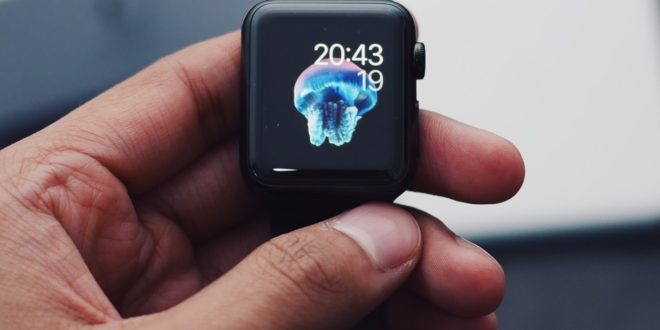Well that didn’t last long.
Apple has reclaimed top spot on the wearables food chain as it once again became the biggest vendor in the space, according to market research firm Canalys.
The iPhone-maker had previously conceded first place in the second quarter of the year to China’s Xiaomi, but thanks to the launch of the Watch Series 3 (the first by the company to connect to the internet without being tethered to a phone) Apple was able to ship 3.9 million units. Xiaomi and Fitbit sit in second and third, with 3.6 million and 3.5 million wearable bands respectively.
Apple’s growth also proves the validity of the decision to ditch the iPhone from the Apple Watch equation and give the wearable its own signal.
“Strong demand for the LTE-enabled Apple Watch Series 3 has dispelled service providers’ doubts about the cellular smartwatch not appealing to customers,” said Canalys Analyst Jason Low.
The year-on-year figures make pretty reading for Apple, shipping 1.1 million more units than this time last year. It may have dipped in the middle, but Apple grabbed the top spot in the first quarter of the year for the first time since Q3 2015. In other good news for Apple, CEO Tim Cook recently announced that sales of the watch were up by 50 per cent for the third straight quarter, due to the company’s repositioning of the Watch as more of a health-oriented device.
In terms of market share, Apple sits at the top with 23 per cent, followed by Xiaomi on 21 per cent and Fitbit on 20 per cent. After the big three there is a big drop off, with Huawei a distant fourth on six per cent. Despite previously dropping out of the top five to Fossil in the second quarter, something of a resurgance has seen Samsung re-enter the quintet of major wearables vendors with a market share of five per cent.
Overall this is positive news for the market. The third quarter is usually weak for wearables, with many consumers holding out for the Christmas period. While the wearables industry was down by three per cent, that is less than would be expected for the third quarter and would suggest that we are in for strong holiday sales figures.
Vendors are expecting a stronger fourth quarter this year, with new smartwatches highlighting improved health-tracking features and longer battery life, on top of better and slimmer designs.Fourth quarter performance will be crucial to assess consumers’ reaction toward the emerging trend of fashionable smartwatches that prioritise form rather than function. “Google must show stronger commitment to help Android Wear vendors, which are now mostly watchmakers and fashion brands, to further improve the user experience and app ecosystem. Otherwise, the market will see further consolidation, as vendors such as Apple, Samsung and Fitbit dominate with their watch software platforms,” added Low.
 PCR Tech and IT retail, distribution and vendor news
PCR Tech and IT retail, distribution and vendor news




